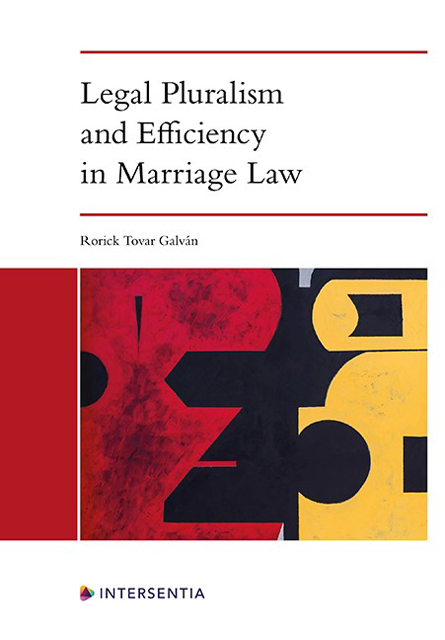Book contents
- Frontmatter
- Dedication
- Miscellaneous Frontmatter
- Foreword
- Preface
- Acknowledgments
- Contents
- List of Cases
- Introduction: Uncertainty and Inconsistency Surrounding the Determination of the Applicable Law in the EU Instruments on Matrimonial Issues
- Part I Economics As A Point Of Departure To Explain The Substantive Rules On Matrimonial Issues
- PART II Economics as a Point of Departure to Build a System of Conflict of Laws For Matrimonial Issues
- Conclusion: Certainty, Precision, Coherence, and Simplicity in the Determination of the Applicable Law
- Bibliography
- Index
- About the Author
Chapter 5 - Legal Pluralism and its Costs for Married Couples
Published online by Cambridge University Press: 17 December 2022
- Frontmatter
- Dedication
- Miscellaneous Frontmatter
- Foreword
- Preface
- Acknowledgments
- Contents
- List of Cases
- Introduction: Uncertainty and Inconsistency Surrounding the Determination of the Applicable Law in the EU Instruments on Matrimonial Issues
- Part I Economics As A Point Of Departure To Explain The Substantive Rules On Matrimonial Issues
- PART II Economics as a Point of Departure to Build a System of Conflict of Laws For Matrimonial Issues
- Conclusion: Certainty, Precision, Coherence, and Simplicity in the Determination of the Applicable Law
- Bibliography
- Index
- About the Author
Summary
A marriage – or any other contract – linked to two or more legal systems entails significant risks and uncertainties for those bound by it. How this conflict of laws is resolved might generate unexpected benefits, but also serious disadvantages, as the application of an unexpected law can radically change the rights and obligations assumed by the parties. The situation of business partners is illustrative here, as it is possible to measure the dimension of the problem of legal pluralism. There are a number of empirical studies focused on international trade, underscoring its negative effects on the volume of exchanged goods. These surveys confirm that borders clearly have an adverse impact on the willingness of people to make exchanges across them. It is interesting to note that, despite the efforts of governments to eliminate tariff barriers and other surcharges on imported and exported goods, the number of international transactions continues to be lower than of domestic ones. People have the tendency to invest more in domestic markets, despite the benefits of diversifying into foreign economies. One study, for example, suggests that the mere existence of a border between two cities can decrease the trade volume five-fold. Other surveys estimate that it could be between 12 and 20 times. Whatever the exact figure, all of them confirm the same basic fact: borders do matter, because they diminish the number of transactions that are realized between individuals located on different sides significantly.
The reasons that explain this phenomenon – known as border effect in academic literature – could be varied: distance between countries; linguistic and cultural barriers; transportation fees; practical difficulties to find an appropriate partner from afar; or economic inequalities. However, it is remarkable that there are still big differences in the trade volume between neighboring countries which are very similar in terms of culture, language and economic welfare, compared to domestic trade. Such disparities can even be found between those that – in addition to these similarities – have implemented policies to liberalize and deregulate their mutual trade, such as for example the United States and Canada.
- Type
- Chapter
- Information
- Legal Pluralism and Efficiency in Marriage Law , pp. 121 - 144Publisher: IntersentiaPrint publication year: 2022



